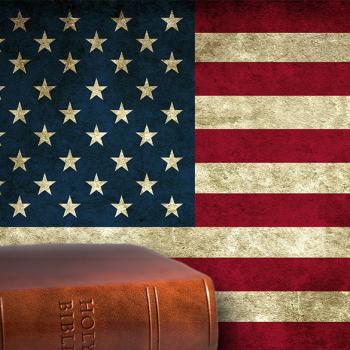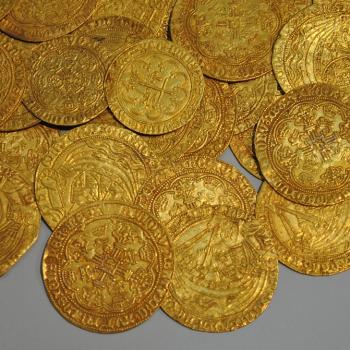
The Social Gospel of the late 19th and early 20th centuries was concerned with the treatment and wellbeing of people’s physical existence rather than their post-mortem destination. They reframed the Good News towards public good and away from personal salvation. The Federal Council of Churches, founded in 1908, published The Social Creed of the Churches later that year. It listed grievances that these churches saw in the industrializing world. These included abolition of child labor, establishing a minimum living wage, and a healthy ‘work-life balance’.
This Christ in Capital series has already looked at the Protestant work ethic and the exploitation of workers. The American economy was thriving after World War I. We see extravagance in the 1920’s and the Great Depression in the 1930’s. This time in American history – the Progressive era – took the rubble of the Depression and tried to create a social safety net. The goal was to ensure that everyone’s basic needs would be met. Christian ideals were foundational to this movement.
The New Deal as a Moral Necessity
Franklin Delano Roosevelt was the 32nd president and the inheritor of a crumbled economy from Hoover. FDR spent his campaign promoting the New Deal and promoting programs to help the fallen American people get back on their feet. Because of Roosevelt’s upbringing in the Episcopalian church, he had a natural bend towards the social gospel.
“I think FDR very clearly absorbed the principles of the Social Gospel and quickly became acclimated to the lifestyle associated with it… Roosevelt revived and incorporated it into political and social policy during his presidency. Much of the New Deal legislation is very clearly indebted to Social Gospel ideas.” – James D. Bratt
The New Deal was a series of reforms and programs designed to pull America out of the Great Depression. These included economic and banking reform as well as unemployment programs. The need for systemic change as a Christian value is a cornerstone of the social gospel.
In an interview, Bratt, the editor of A Christian and a Democrat: A Religious Biography of Franklin D. Roosevelt, he notes that FDR was surrounded by others who saw the social gospel as the way forward. “Harry Hopkins, who served as Roosevelt’s right-hand man throughout the administration, was a committed Social Gospel Methodist from Iowa. Eleanor Roosevelt had worked in Social Gospel programs following her return from boarding school abroad. And Frances Perkins, who served as FDR’s Secretary of the Treasury for all of his 13 years in office, was very devout and theologically informed, and she was the architect of Social Security, among other programs. She very consciously pursued her political work as an expression of her Social Gospel commitments.”
What Now?
The idea that American Christians are big business Republicans who are anti-Democrat is a new phenomena. The idea that Christians should be for the workers and those without power has a strong foothold in American history. The Social Gospel has been seen as one of the most influential contribution that America has made to Christianity. While we enter another period of economic uncertainty, we should remember that we need to love our neighbor as ourselves. We can help out neighbor in our community, but it takes reforming the system to help those out of our reach.













